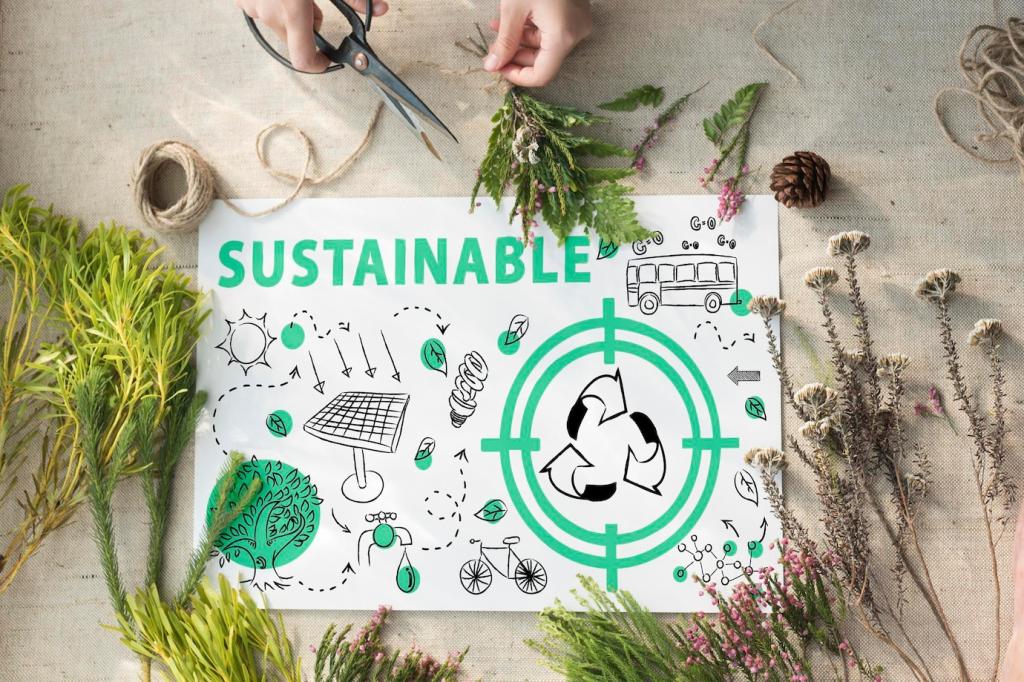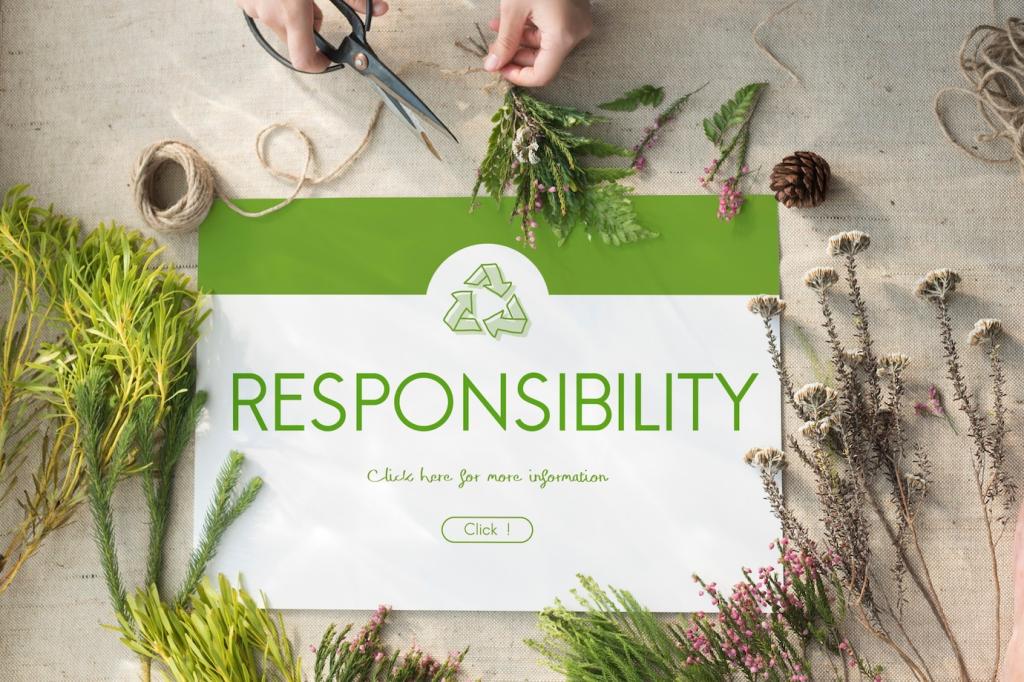
Write Ads That Respect the Planet
Chosen theme: Tips for Writing Sustainable Advertising Copy. Step into a clear, honest, and human approach to advertising where good words do less harm and inspire more meaningful action.
Be Specific, Measurable, and Verifiable
Ditch vague terms like “eco-friendly” and name the proof instead: 30% post-consumer recycled paper, water-based inks, or a 22% emissions reduction versus 2022. Always include timeframes, baselines, and scope.
Use Recognized Standards and Certifications
Cite credible frameworks and labels when relevant—FSC, Fairtrade, ENERGY STAR, B Corp, Cradle to Cradle—without implying blanket virtue. Explain what the certification covers, and where it does not.
Anecdote: The ‘Planet-Positive’ Rewrite
We replaced a fluffy “planet-positive” headline with “Refill once, reduce plastic by 85% per year, verified by third-party audit.” Click-through rose, complaints fell, and trustful comments doubled within a week.
Voice and Tone That Invite, Not Shame
Empathy Without Guilt-Tripping
Acknowledge trade-offs: people juggle budgets, time, and habits. Offer kinder language—“Try a refill to save waste and money”—instead of moralizing. Invite progress, celebrate small wins, and normalize learning.
Plain Language With Purpose
Write at a readable level. Swap jargon for everyday words, define any technical terms, and keep sentences tight. Clarity lowers cognitive load and makes responsible choices feel straightforward, not exhausting.
Consistency Across Channels
Keep claims and tone aligned in email, social, web, and packaging. If an ad promises plastic reductions, the landing page should repeat the same numbers, sources, and timeframes without dilution.

Show Your Math
Present numbers in context: “8.2 kg CO₂e per unit, down from 10.5 kg CO₂e in 2022, Scope 1–3 included.” Add a short note on methodology to anchor credibility.

Lifecycle Framing Matters
Explain where the biggest impacts occur—materials, manufacturing, transport, usage, or end-of-life. Target your copy to the hotspot and offer actions that genuinely reduce those lifecycle emissions.

Name the Limits, Invite Dialogue
Transparency builds trust: “We offset shipping while we redesign packaging; offsets are a bridge, not the destination.” Invite questions in comments and ask readers which improvements matter most.


Calls to Action That Lower Footprint
Promote refills, repairs, and rentals. “Refill now and cut plastic by 85% this year” beats generic urgency. Bundle how-to guides so action feels effortless and instantly rewarding.
Calls to Action That Lower Footprint
Not every CTA needs a checkout. Encourage bookmarking a repair guide, subscribing for refill reminders, or downloading a care sheet that extends product life and reduces total impact.
Inclusive, Accessible, and Low-Carbon Copy
Use descriptive alt text, high-contrast palettes, and clear headings. Keep paragraph length reasonable. Readers should understand your sustainable benefits with screen readers or quick scans alike.


Inclusive, Accessible, and Low-Carbon Copy
Avoid one-size-fits-all claims. Localize examples, units, and regulations. Speak to community realities—water scarcity, recycling infrastructure, or transit access—so your advice is practical, not prescriptive.
Storytelling That Centers Real Impact
Tell how a refill system, returnable packaging, or local sourcing shifts behavior. Show the ripple effect: fewer trucks, less storage, and quieter neighborhoods benefiting from reduced deliveries.
Storytelling That Centers Real Impact
Share specific anecdotes: “After switching to refills, our café cut weekly waste by two bags and saved $48.” Invite readers to comment with their own measurable outcomes.



Question Every Adjective
Remove vague words like “green,” “clean,” or “ethical” unless you define them with data. Replace fluff with specifics, sources, and a timeframe readers can verify independently.

Simplify and Shorten
Tighten sentences, cut redundancies, and move proof points near claims. Clear structure reduces confusion, lowers bounce rates, and leaves room for a concise sustainability note that actually gets read.

Integrity Pass and Invite Feedback
Ask: Would I say this to a skeptical friend? If not, rewrite. End with an ask: “Subscribe for monthly copy tips” or “Reply with claims you want clarified next.”
